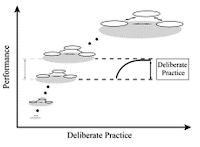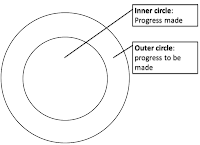Advantages of interest-focused development

Soon, I will post an article in which I make a plea for interest-focused development. In that article I will explain what I mean with interest-focused development and what its advantages are for individuals and organizations. Here, I will give a preview of that article by mentioning the direct advantages of interest-focused development. When we are doing something which interests us, in other words, which we enjoy and find meaningful, we enter a psychological state of attentive engagement and we experience positive emotions. In this state we think more clearly, we comprehend things deeper and more easily and we remember better (Murphy Paul, 2013) due to which we learn more efficiently and better.




